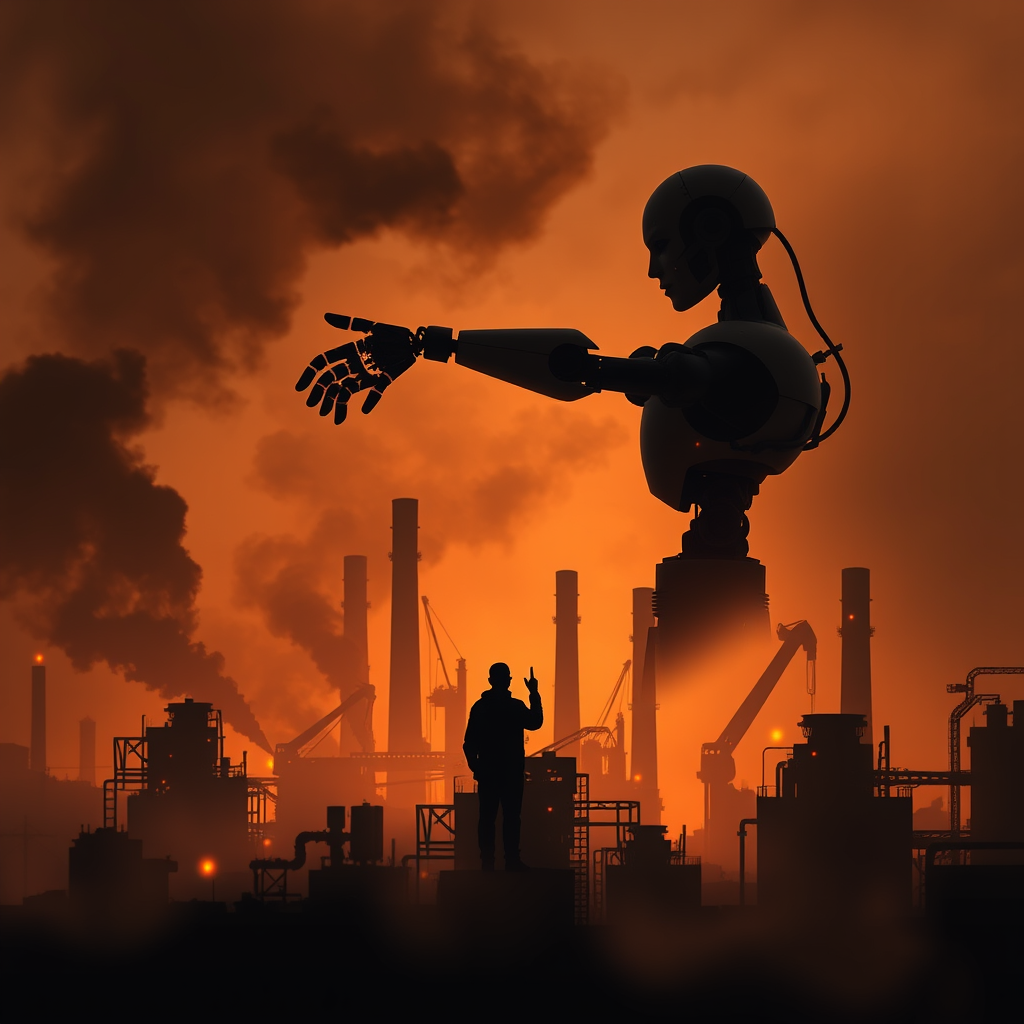Introduction
As we advance deeper into the 21st century, the debate around automation and its impact on the workforce has become more intense than ever. From the factory floors to corporate boardrooms, the question lingers: *Will robots take our jobs?* The rise of automation, powered by artificial intelligence (AI) and machine learning, is transforming industries at a pace that few could have predicted. This transformation is not just about robots performing manual tasks; it’s about smart systems making decisions, solving problems, and even out-thinking humans in certain areas.
The Automation Landscape: A Global Context
Globally, automation is reshaping industries, driving efficiency, and reducing costs. In manufacturing, robots are assembling products faster and with more precision than human hands. In healthcare, AI is diagnosing diseases with accuracy that rivals seasoned doctors. Even in finance, algorithms are making investment decisions in fractions of a second. The World Economic Forum predicts that by 2025, machines will handle more than half of all workplace tasks, a significant leap from the 29% recorded in 2020.
Yet, the impact is not uniform across the globe. In developed countries, where labor costs are high, automation is seen as a means to maintain competitiveness. In contrast, in developing countries, the challenge is more profound. Here, automation could potentially disrupt industries that are heavily dependent on low-cost labor, leading to significant social and economic challenges.
Industries and Roles at Risk
Several industries and roles are more vulnerable to automation than others:
– Manufacturing: Long the poster child for automation, manufacturing continues to see the most significant impact. Assembly line workers, machinists, and even quality control inspectors are increasingly replaced by robots that work tirelessly and with precision.
– Retail and Customer Service: With the rise of AI-driven chatbots and self-service kiosks, roles like cashiers, customer service representatives, and sales associates are under threat. These roles are being replaced or augmented by automated systems that can handle inquiries, process transactions, and even upsell products.
– Transportation and Logistics: Self-driving vehicles, drones, and automated warehouses are revolutionizing how goods are transported and delivered. Drivers, warehouse workers, and dispatchers face an uncertain future as these technologies become more prevalent.
– Healthcare: While doctors and nurses are unlikely to be replaced entirely, roles such as medical transcriptionists, radiologists, and even pharmacists are being automated. AI-driven tools can analyze medical images, transcribe notes, and dispense medications with high accuracy.
– Finance and Accounting: Automation in this sector is not new, but it’s accelerating. Roles like data entry clerks, bookkeepers, and even financial analysts are being taken over by AI that can process data and generate insights faster than any human.
How to Prepare for the Automated Future
While the rise of automation may seem daunting, it also presents opportunities for those willing to adapt. Here’s how you can stay ahead of the curve:
1. Upskill Continuously: The key to staying relevant is continuous learning. Focus on developing skills that complement automation rather than compete with it. For instance, while AI can analyze data, it still requires human oversight to interpret and apply the insights. Skills in data science, AI, machine learning, and digital literacy are becoming increasingly valuable across all industries.
2. Embrace Lifelong Learning: Formal education alone is no longer sufficient. Engage in lifelong learning through online courses, certifications, and workshops. Platforms like Coursera, edX, and LinkedIn Learning offer courses on emerging technologies that can help you stay competitive.
3. Focus on Creativity and Emotional Intelligence: Automation excels at repetitive and data-driven tasks, but it struggles with creativity, empathy, and complex decision-making. Roles that require human intuition, creative problem-solving, and emotional intelligence are less likely to be automated. Cultivate these uniquely human skills to remain indispensable.
4. Be a Change Leader: Rather than resisting automation, position yourself as a leader in the transition. Understand the technology, advocate for its thoughtful implementation, and help your organization navigate the change. By being proactive, you can help shape the future of your industry rather than being left behind.
5. Network and Collaborate: Build a strong professional network to share knowledge, ideas, and opportunities. Collaboration with peers, mentors, and experts in your field can provide insights into emerging trends and technologies, helping you stay ahead.
A Glimpse into the Future: Inspiration from Fiction
Popular culture has long explored the theme of automation and its impact on humanity. Shows like Westworld and Black Mirror present dystopian visions where robots and AI disrupt society in unsettling ways. These fictional accounts, while exaggerated, underscore the need for ethical considerations and responsible implementation of automation in our world.
In Westworld, for instance, the blurring lines between human and machine highlight the complexities of AI autonomy. Similarly, Black Mirror often explores the unintended consequences of advanced technology, offering cautionary tales about the potential pitfalls of a fully automated world.
Conclusion
Automation is not the enemy; it’s a tool that, when used wisely, can enhance human capabilities and drive progress. The key lies in our ability to adapt, learn, and innovate. By embracing the opportunities that automation brings and preparing for the challenges, we can ensure that we thrive in the new era of work. The future is not about machines replacing humans; it’s about humans working alongside machines to achieve greatness.
As automation continues to evolve, so too must we. The question isn’t whether robots will take our jobs—it’s how we can evolve to stay ahead of the curve and redefine what it means to work in a world where machines are our collaborators, not our replacements.
